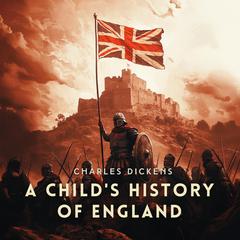 Play Audiobook Sample
Play Audiobook Sample
Oliver Twist Audiobook
 Play Audiobook Sample
Play Audiobook Sample
Quick Stats About this Audiobook
Total Audiobook Chapters:
Longest Chapter Length:
Shortest Chapter Length:
Average Chapter Length:
Audiobooks by this Author:
Publisher Description
Oliver Twist, subtitled The Parish Boy’s Progress, is the second novel by English author Charles Dickens, published by Richard Bentley in 1838. The story is about an orphan, Oliver Twist, who endures a miserable existence in a workhouse and then is placed with an undertaker. He escapes and travels to London where he meets the Artful Dodger, leader of a gang of juvenile pickpockets. Naïvely unaware of their unlawful activities, Oliver is led to the lair of their elderly criminal trainer Fagin. Oliver Twist is notable for Dickens’ unromantic portrayal of criminals and their sordid lives. The book exposed the cruel treatment of the many orphans in London during the Dickensian era. The book’s subtitle, The Parish Boy’s Progress, alludes to Bunyan’s The Pilgrim’s Progress and also to a pair of popular 18th-century caricature series by William Hogarth, A Rake’s Progress and A Harlot’s Progress. An early example of the social novel, the book calls the public’s attention to various contemporary evils, including child labor, the recruitment of children as criminals, and the presence of street children. Dickens mocks the hypocrisies of his time by surrounding the novel’s serious themes with sarcasm and dark humor. The novel may have been inspired by the story of Robert Blincoe, an orphan whose account of hardships as a child laborer in a cotton mill was widely read in the 1830s. It is likely that Dickens’s own early youth as a child laborer contributed to the story’s development.
Download and start listening now!
Oliver Twist Listener Reviews
Be the first to write a review about this audiobook!
About Charles Dickens
Charles Dickens (1812–1870) was born in Landport, Portsmouth, England, the second of eight children in a family continually plagued by debt. A legacy brought release from the nightmare of debtors’ prison and child labor and afforded him a few years of formal schooling. He worked as an attorney’s clerk and newspaper reporter until his early writings brought him the amazing success that was to be his for the remainder of his life. He was the most popular English novelist of the Victorian era, and he remains popular, responsible for some of English literature’s most iconic characters.























